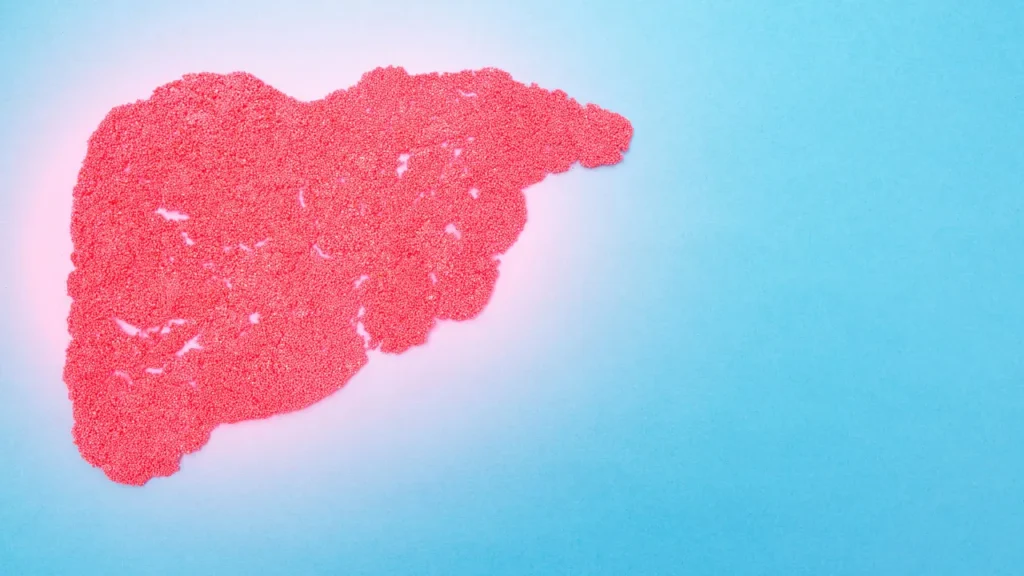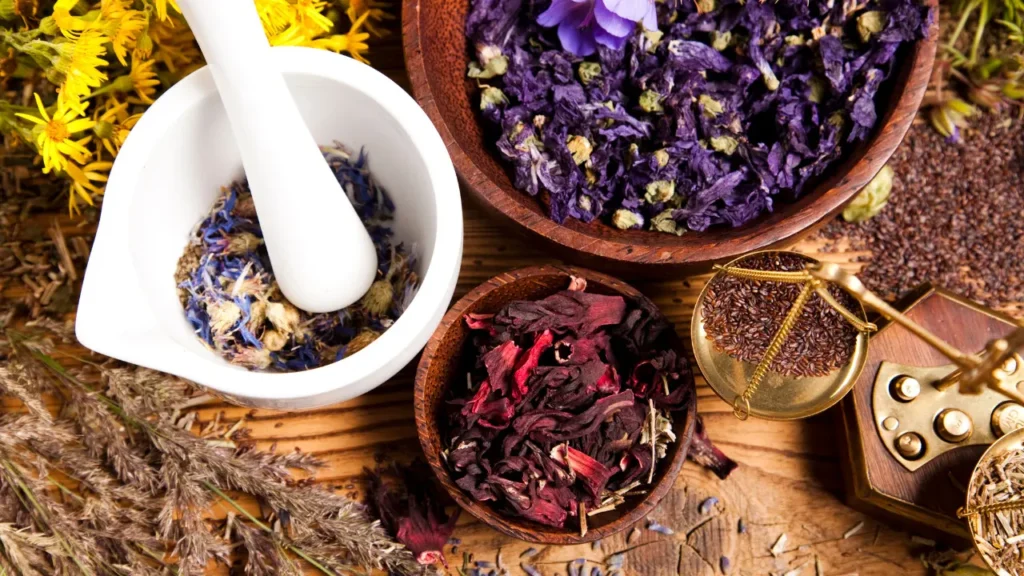Water germander (teucrium scordium) is a perennial herbaceous plant native to Europe and North Africa that belongs to the lamiaceae (mint) family. It is most usually found in moist places like marshes, wet meadows, and riverbanks. Water germander has a long history in traditional medicine to treat a variety of diseases, including digestive issues, respiratory infections, and skin conditions. The nature of water germander, its potential health advantages, appropriate dosage, side effects, substance interactions, and best practices for safe use will be discussed in this article. This herb’s chemistry and physiological effects on the body and brain will also be thoroughly highlighted in this article.
You May Also Like:
Sunmed CBD vs. Partnered Process CBD: Finding the Best CBD for Sleep
Androstenedione: Benefits, Dosage, Side Effects, Drug Interactions, and Other Important Information
Water Germander: Benefits, Dosage, Side Effects, Drug Interactions, And Other Important Information is an original (NootropicsPlanet) article.
Nature of Water Germander
The tall, square-shaped stems of water germander (teucrium scordium) and their opposing, lanceolate leaves with toothed margins are the characteristics that distinguish it from other plants. The plant grows to a height of 30-60 cm (12-24 inches) and bears tiny, tubular pink to purple blooms. Blooming normally takes place between June and September. The plant’s powerful fragrance is due to its volatile essential oils, which add to its medicinal properties.
Health Benefits of Water Germander
Water germander’s numerous bio-active components contribute to its many possible health advantages. Among the most important therapeutic benefits are:
1. Anti-inflammatory Effects: Water germander’s diterpenoids and flavonoids have substantial anti-inflammatory properties. These drugs suppress the activation of nuclear factor-kappa B (NF-B), a transcription factor that regulates inflammatory gene expression, and inhibit the production of pro-inflammatory cytokines such as interleukin-6 (IL-6) and tumor necrosis factor-alpha (TNF-).
2. Antibacterial Properties: Water germander’s essential oils and diterpenoids have antibacterial properties against a variety of diseases, including bacteria, fungus, and parasites. These chemicals can damage microbial cell walls and interfere with critical cellular functions, resulting in pathogen death.
3. Antioxidant Abilities: The flavonoids in water germander have strong antioxidant properties that help neutralize free radicals and reduce oxidative stress. These antioxidant properties can protect cells from oxidative damage and lower the risk of chronic diseases like heart disease, cancer, and neurological disorders.
4. Hepatoprotective Effects: In pre-clinical trials, water germander has demonstrated its ability to protect the liver from injury caused by toxins or oxidative stress. Water germander flavonoids and diterpenoids can alter the expression of antioxidant enzymes like catalase and superoxide dismutase (SOD), as well as inhibit lipid peroxidation, a process that causes cellular damage in the liver.
5. Neuroprotective Effects: Water germander flavonoids have neuroprotective properties, protecting neuronal cells from oxidative stress-induced damage and inflammation. By suppressing the enzyme acetylcholinesterase (AChE), these drugs can also regulate neurotransmitter systems such as the cholinergic system, hence increasing cognitive performance.

Chemistry of Water Germander
Water germander has various bio-active substances that contribute to its medicinal properties. Among the major compounds are:
1. Diterpenoids: Water germander contains diterpenoids such as teuflin, teucvidin, and teuscordin. These chemicals have shown that they have strong anti-inflammatory, antibacterial, and anticancer properties.
2. Flavonoids: Water germander contains flavonoids as such as apigenin, luteolin, and quercetin. These polyphenolic chemicals have anti-inflammatory, antioxidant, and neuroprotective effects.
3. Essential Oils: Water germander essential oils contain substances such as pinene, caryophyllene, and geraniol. These substances have antibacterial, anti-inflammatory, and antioxidant properties.
Physiological Properties of Water Germander
The physiological properties of the bio-active chemicals in water germander can be divided into many major categories:
1. Anti-inflammatory Properties: By preventing the synthesis of pro-inflammatory cytokines like IL-6 and TNF-, Water germander’s diterpenoids and flavonoids regulate the inflammatory response. They also prevent the activation of NF-B, a transcription factor that controls the expression of genes related to inflammation. In a variety of illnesses, this helps to reduce inflammation and symptoms.
2. Antimicrobial Properties: Water germander’s essential oils and diterpenoids work against microbes by rupturing their cell walls and obstructing vital cellular functions. As a result, bacteria, fungus, and parasitic organisms die, making water germander useful in treating a variety of ailments.
3. Antioxidant Properties: The flavonoids in water germander have strong antioxidant properties that scavenge free radicals and lessen oxidative stress. By preventing oxidative cell damage, which can result in chronic diseases including cancer, cardiovascular disease, and neurological disorders, this function helps safeguard cells.
4. Hepatoprotective Properties: By regulating the expression of antioxidant enzymes like catalase and SOD, the flavonoids and diterpenoids in water germander protect the liver. This leads to a decrease in lipid peroxidation, a process that harms liver cells and eventually promotes hepatoprotection.
5. Neuroprotective Properties: The flavonoids in water germander have the ability to protect neuronal cells from the harm and inflammation brought on by oxidative stress. They also influence the acetylcholinesterase (AChE), an enzyme that degrades the neurotransmitter acetylcholine, in neurotransmitter systems such as the cholinergic system. Acetylcholine levels in the brain are raised by blocking AChE, which in turn enhances cognitive function.

Optimal Dosage of Water Germander
The ideal dosage of water germander as a dietary supplement can differ depending on your age, weight, and overall health status as well as the particular formulation used. Before beginning any supplements, it is crucial to speak with a healthcare provider who can give you individualized advice on the right dosage.
Water germander can often be taken as a tea, tincture, or pill. For tea, it is advised to soak 1-2 tablespoons of dried water germander for 10-15 minutes in a cup of hot water. You can consume this up to three times daily. It is essential to adhere to the manufacturer’s directions or a healthcare professional’s advice when taking tinctures and capsules.
Side Effects of Water Germander
When used carefully and sparingly, water germander is generally regarded as safe. However, some people can encounter negative side effects like nausea, allergic reactions, or headaches. Water germander should not be used by pregnant or nursing women as it has not been proven to be safe during these times.

Potential Substance Interactions
Water germander can interact with other drugs or supplements, just like any dietary supplement. Before beginning water germander supplementation, especially if you are taking any medications, you must speak with a healthcare provider. The following are some possible interactions to be mindful of:
1. Anticoagulant and Anti-platelet Drugs: When combined with anticoagulant or anti-platelet drugs like warfarin, aspirin, or clopidogrel, the coumarin components in water germander can have anticoagulant and anti-platelet effects that can increase the risk of bleeding.
2. Hypoglycemic Substances: Water germander has hypoglycemic properties that can enhance the effectiveness of diabetes drugs while also raising the risk of hypoglycemia.
3. Blood Pressure-lowering Medications: Water germander can have vasodilatory effects that could lower blood pressure. When combined with anti-hypertensive drugs, this can cause dangerously low blood pressure.
Responsible Use of Water Germander
It is crucial to observe the following:
1. Speak with a healthcare provider before consuming supplements, especially if you have any pre-existing medical issues or are taking medications, in order to ensure the safe and responsible use of water germander as a nutritional supplement.
2. Adhere to the dosage recommendations made by the manufacturer or a medical expert.
3. Recognize possible side effects and how they can interact with other drugs or dietary supplements.
4. To guarantee the best quality and purity, use water germander from reliable suppliers.
5. If you encounter any negative reactions or side effects, stop using water germander and seek medical advice.
Water Germander:
Conclusion
The information we have provided in this article demonstrates how the variety of bio-active substances in water germander contribute to its potential medicinal and health effects. However, it is crucial that you speak to your doctor before trying this supplement, as there is still research being conducted, and everyone’s body reacts differently.

References
1. Seeff, Leonard, Felix Stickel, and Victor J. Navarro1. “Hepatotoxicity of Herbals and Dietary Supplements.”2 Drug-Induced Liver Disease, 3rd ed., Elsevier, 2013, pp. 631-657
2.“Teucrium Scordium.” Royal Horticultural Society, RHS Registered Charity no. 222879 / SC038262, www.rhs.org.uk
Important Note: The information contained in this article is for general informational purposes only, and should not be construed as health or medical advice, nor is it intended to diagnose, prevent, treat, or cure any disease or health condition. Before embarking on any diet, fitness regimen, or program of nutritional supplementation, it is advisable to consult your healthcare professional in order to determine its safety and probable efficacy in terms of your individual state of health.
Regarding Nutritional Supplements Or Other Non-Prescription Health Products: If any nutritional supplements or other non-prescription health products are mentioned in the foregoing article, any claims or statements made about them have not been evaluated by the U.S. Food and Drug Administration, and such nutritional supplements or other health products are not intended to diagnose, treat, cure, or prevent any disease.


